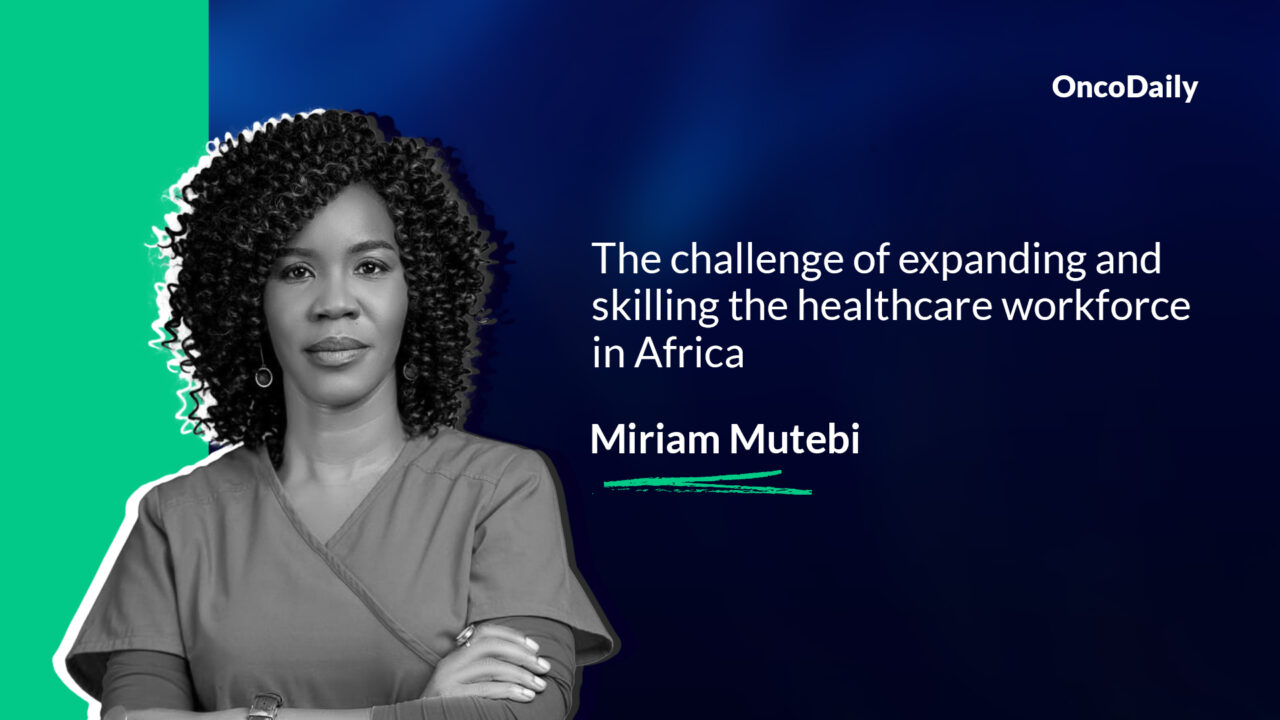Miriam Mutebi shared on LinkedIn:
“The challenge of expanding and skilling the healthcare workforce in Africa is a pressing concern.
Despite the expanding efforts to train professionals, the pace cannot keep up with the growing cancer burden. As a result, there’s now an increasing focus on leveraging technology, innovations, and AI to support health systems.
While these strategies hold promise, it’s crucial to recognize that technology in itself is not a panacea for dysfunctional health systems.
Deliberate investment in delivering the basics of cancer care is still key. The instinct to apply new technological solutions to every issue can be tempting, but without intentional investment in the workforce and infrastructure, these solutions will often fall short.
During COVID-19, we saw an increase in technology use, with virtual tumor boards and a positive shift towards brain circulation, as regional and international experts collaborated through digital platforms. At AORTIC- Africa , like others, we embraced this shift by transitioning our webinars and short-course training programs online, and expanding our convening capacity to include virtual formats for our biennial conference.
Though benefits look promising in diagnostics(pathology, radiology) and care delivery etc, integrating technology into health systems is not without challenges. Many tech pilots fail due to lack of scalability and integration with existing systems.
We need to ensure that new technologies do not add additional strain to an already burdened workforce. For example, if a healthcare provider is already overwhelmed, asking them to input data into a new app without increasing efficiency may complicate their workload rather than alleviate it. Governance and data security remain key considerations along with seamless integration.
Kingsley I. Ndoh of Hurone AI is developing patient support tools in Rwanda and other parts of Africa to enhance navigation in languages familiar to patients—a promising use of AI in a continent rich with dialects.
Similarly, Dr Omolola Salako -The People’s Oncologist Oncopadi tool connects patients with resources and clinicians across Nigeria and beyond.
Though AI and mobile health (mHealth) promise disruptive technology, they require careful evaluation in low- and middle-income countries (LMICs) to create sustainable models. The potential benefits of these technologies in democratising healthcare must be weighed against the risks of deepening inequalities if not implemented carefully.
We often think of innovations as complex. They can however be as simple as process steps to improve care delivery, such as registering patients ahead of time or installing patient navigators. Technology can enhance healthcare delivery and support the workforce. It however cannot substitute for building robust referral pathways and functional health systems.”
Source: Miriam Mutebi/LinkedIn
Miriam Mutebi is a Breast Surgical Oncologist and Assistant Professor in the Department of Surgery at the Aga Khan University Hospital in Nairobi, Kenya. She is the President of the African Organization for Research and Training in Cancer (AORTIC), and past president for Kenya Society of Hematology and Oncology (KESHO) and on the Board of Directors of the Union for International Cancer Control (UICC).
She is the co-founder of the Pan African Women’s Association of Surgeons and is part of the Kenya Association of Women Surgeons. She is an avid supporter for the education and support for women, especially in surgery and she aims to provide mentorship for women in surgery and to improve women’s health and surgical care in Africa. She is currently pursuing a pilot’s license in order to extend breast care services to marginalized areas.




